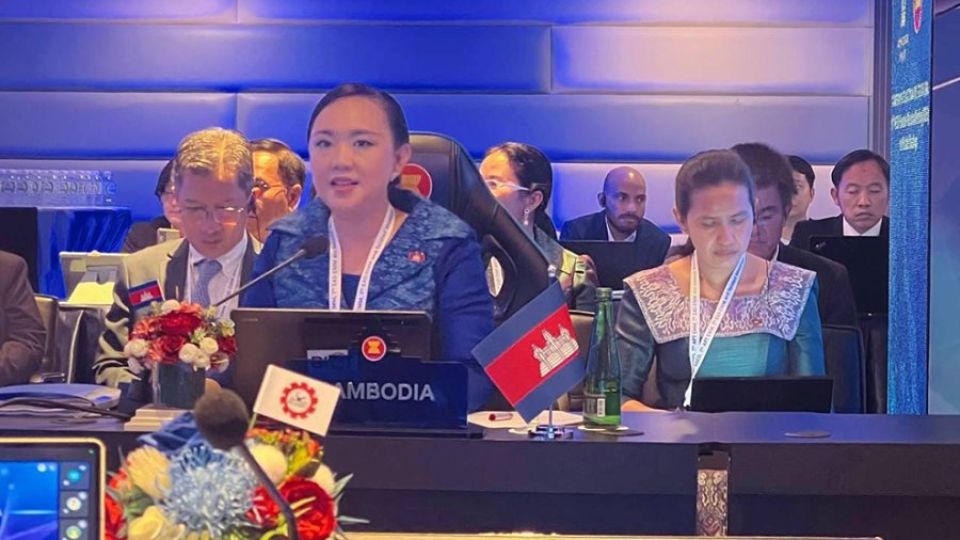August 27, 2024
PHNOM PENH – A senior Cambodian official called on ASEAN to address the challenges of digital inequality and 21st-century skills development, ensuring that the bloc’s youth can thrive in education within a constantly evolving global context.
The appeal was made by Kim Sethany, permanent secretary of state at the Ministry of Education, Youth and Sport, during the 13th ASEAN Education Ministers Meeting (ASED) held on August 25 in Buriram province, Thailand.
The meeting, held under the theme “Transforming Education in the Digital Era”, aimed to discuss education-related issues in the ASEAN region, review progress in implementing the education action plan and strengthen cooperation among the bloc’s member countries.
Sethany urged a review of the existing framework to ensure that it equips students to become successful, resilient citizens capable of contributing to national development.
“Responding to current job market needs requires young people to adapt, innovate, have a global vision and possess specific technical skills,” she said.
Sethany called for a transformation in education, focused on building human resources for the digital age and promoting lifelong learning. She emphasised the need to improve pedagogical methods, curriculum design and assessment techniques that foster deep thinking and creativity.
She also advocated for the integration of digital technology and artificial intelligence (AI) in teaching and learning, highlighting the importance of professional development for teachers in line with the rapid evolution of digital technology.
Sethany reaffirmed the country’s commitment to the principles of the ASEAN Community Vision 2025, aiming to achieve education and development goals, as well as environmental sustainability.
During the meeting, the ministers issued a joint statement, reaffirming the 2025 vision, which seeks to create a resilient community capable of responding to socio-economic vulnerabilities, disasters, climate change and emerging challenges.
The statement emphasised the need to reduce disparities in human resource development, institutional capacity and competitiveness among ASEAN nations. It called for strengthened cooperation to support members of the bloc in focusing on environmental integration and sustainable development.
It underscored the commitment of the bloc’s leaders to achieve the Declaration on Early Childhood Care and Education in Southeast Asia and highlighted the importance of ensuring the mental health and well-being of teachers and students by promoting enjoyable learning within the framework of current policies.
The statement also reiterated the commitment of ASEAN leaders to the ASEAN Declaration on Strengthening Education for Out-of-School Children and Youth and emphasised the importance of multilateral regional cooperation and partnerships in educational exchanges.
Additionally, it reaffirmed their commitment to implementing the Declaration on the Digital Transformation of Education Systems in ASEAN and to advancing roadmaps that increase access to secure digital learning opportunities, promote digital literacy and develop transferable skills across member countries.


